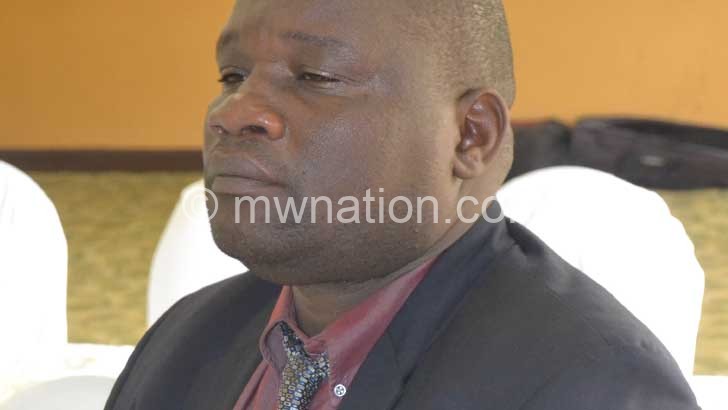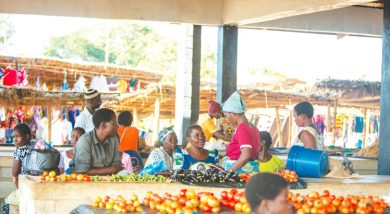World bank Faults subsidy
The World Bank has faulted the Tonse Alliance administration’s flagship K160 billion Affordable Inputs Programme (AIP), saying the huge monetary costs “make it impossible” for government to sustain the scheme amid limited resources.
The bank expressed its reservations in the 12th edition of its biannual publication on Malawi, the Malawi Economic Monitor (MEM) which was virtually launched yesterday. The report provides an analysis of economic and structural development issues in the country.
Specifically commenting on AIP, the World Bank report titled Doing More With Less: Improving Ser vice Delivery in Energy and Water states: “AIP has two important positive aspects: the use of an electronic system and the engagement of the private sector in marketing activities.
“However, the huge fiscal costs make it impossible for the government to maintain the scheme in the future.”
This is the first time the World Bank, Malawi’s largest multilateral lender for the past 10 years, has commented on the AIP since it was unveiled mid this year. commented on the AIP since it was unveiled mid this year.
The new subsidy programme has quadrupled the number of beneficiaries to 4.2 million smallholder farming households compared to 900 000 for its predecessor, Farm Inputs Subsidy Programme (Fisp). The increase in beneficiaries has come at a cost as AIP is pegged at K160 billion compared to K35 billion for Fisp.

In the 2020/21 National Budget that Minister of Finance Felix Mlusu presented and Parliament approved in October, at K160 billion, the AIP dominates the overall agriculture sector budget, taking up about 45 percent of the agriculture, water development and climate change budget of K354.8 billion.
In direct reaction to this, the World Bank says: “This crowds-out potentially valuable investments in the sector which could promote diversification and more sustainable farming practices.”
In the report, the World Bank also observes that the AIP budget represents seven percent of the total approved 2020/21 National Budget pegged at K2.2 trillion, thereby reducing fiscal space for investments in other sectors while contributing to a widening fiscal deficit and higher interest payments.
The bank further notes that AIP will also call for a substantial increase in fertiliser imports, thereby straining the external balance.
The World Bank has proposed reforms in AIP, including a reduction in the share of the subsidy, fixing the subsidy level to reduce the fiscal risk and also rethinking the objective of the programme as well as the targeting. It notes that the bottom ultra-poor are unable to take advantage of subsidies and would be better off being linked to social safety nets such as social cash transfers.
Reacting to the World Bank sentiments on AIP, National Association of Smallholder Farmers in Malawi (Nasfam) head of policy and communication Beatrice Makwenda said yesterday that for better planning and resource allocation, there is need to inclusively develop AIP plan beyond one year.
She said: “The plan will critically assess the type of beneficiaries, the differentiated input packages and crop choices. In addition, production through the AIP should be linked to different marketing interventions.
“Nasfam therefore recommends that AIP should not be looked at as an isolated programme but alongside all other transformational programmes such as marketing and resilience.”
In a separate interview yesterday, Levison Chiwaula, associate professor of economics at Chancellor College—a constituent college of the University of Malawi,
shared the World Bank position on AIP, stressing that the programme is being implemented in a year when revenue collection has shrunk, thereby exerting more pressure on the fiscus. shared the World Bank
But Ministry of Finance spokesperson Williams Banda said in an interview that it was important to acknowledge that AIP was a deliberate government policy to support smallholder farmers achieve food security.
At a macro level, he said government is expecting a significant impact of the AIP on the country’s economic growth, adding that a maize surplus, beyond the country’s food requirements, is also being projected next year due to the programme.
Banda said : “A thorough evaluation of the performance of the AIP will be conducted to determine its effectiveness, challenges and lessons. This is what will determine the future course of this programme.
“As of now, despite a few challenges in its implementation, government is satisfied with its progress. Many farming households have accessed the cheap fertiliser and other agricultural inputs than ever before.”
Last week, the donor committee on agriculture also raised a number of critical questions over the efficiency of AIP. Two months ago, World Bank’s sister institution, the International Monetary Fund also raised concerns over the narrow focus of the initiative on maize as opposed to Fisp.
Under AIP, 4.2 million smallholder farmers are being targeted and each farmer is paying a fixed price of K4 495 per 50 kilogramme (kg) fertiliser bag and K2 000 for cereal seed coupon (either 5kg maize hybrid seed or 7 kg sorghum seed or 7 kg rice seed).
About 80 percent of the inputs will be retailed directly by the private sector and the remainder by parastatals (Admarc and the Smallholder Farmers Fertiliser Revolving Fund of Malawi).
Under the arrangement, government will pay suppliers a fixed price of K15 500 per 50kg bag and K6 000 for the cereal seed and that government will deliver the subsidies by means of an electronic system while farmers are able to redeem the inputs with their national identity card





